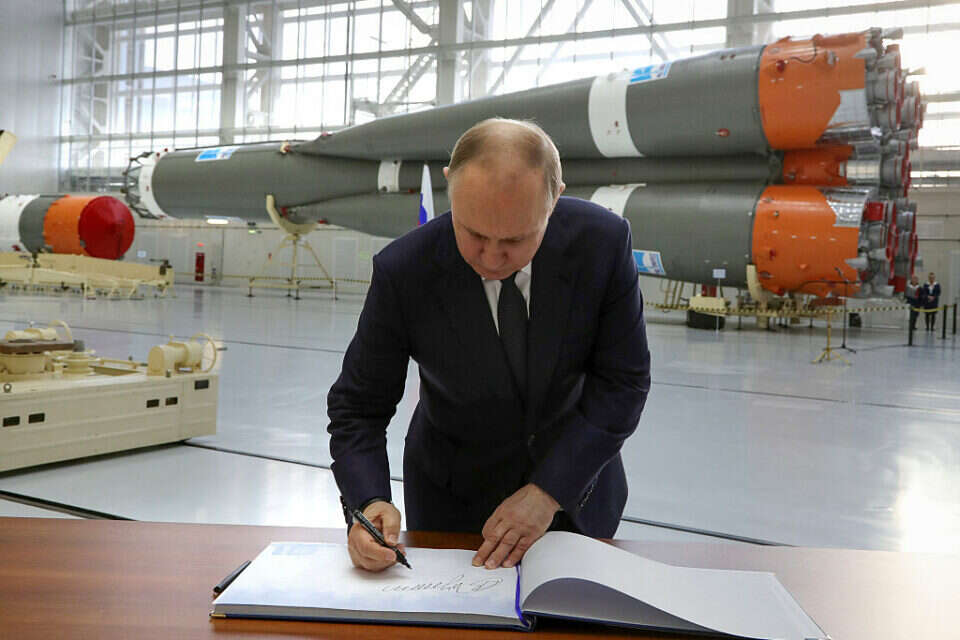Since the annexation of Crimea and the ignition of the Donbas war in 2014, one of the most useful arguments in the Russian propaganda arsenal has been "protection" of Russian speakers and Russian status from "Ukrainian nationalists."
As with the issue of "de-Nazification", these arguments also had no real basis, but it was important for Moscow to inflate the balloon to mark the imperial space and maintain a cultural grip on its neighbors.
The invasion devoured the cards.
On the one hand, in the territories it has managed to occupy, Russia is exchanging textbooks for Russians, but in most of Ukraine's territory a process of de-Russification is gaining momentum - and this time it is completely real.
First, statues and monuments collapsing across Ukraine, associated with the brotherhood of the Russian and Ukrainian peoples or the victory of the Soviet Red Army in the Great Patriotic War.
While most Ukrainians fought against the Wehrmacht in the Red Army, many others actually fought against it and in fact against the Bolshevik regime, which persecuted Ukrainian nationalism and starved to death a huge population as part of the forced collectivization of the peasants.
Second, mentions of Russian settlements or wind giants are erased from public space.
Just yesterday, Kyiv residents voted in favor of changing the names of metro stations with Russian connections in favor of Ukrainian or neutral names.
Many cities have decided to give up street names, reminiscent of sites in Russia or its heroes.
Thus, for example, the longest street in Kharkiv will cease to be called Moscow Boulevard.
Russian wind giants wiped out (illustration), Photo: AFP
Language of an enemy
But perhaps the most dramatic long-term aspect is the growing relinquishment of the very use of Russian - even when the move involves a loss of income (as in the case of Ukrainian bloggers, who are losing tens of thousands of followers because Russian is the international language of all space once in the USSR). , In which the Ukrainians came into contact with the Russians on the ground, the language also became a means of distinguishing between a friend and an enemy: unlike Russian-born Ukrainians, it is very difficult for Russian-born to pronounce the word "pliania" (bread square, in Ukrainian), which made it difficult for Russian invaders. If you will, this is a modern version of "oats" as a means by which the people of Gilad identified the people of Ephraim in the famous case of several judges).
The immediate cause of the phenomenon is understandable: Russian is the language of an enemy state.
Even before the invasion, Russia denied the Ukrainians the right to self-determination and sovereignty.
By the way, Belarus could have become the next in line - and even among the anti-Putinist Belarusian majority there are signs of giving up Russian, although dictator Lukashenko, Putin's ally, has done quite a bit in the last two years to sabotage Belarusian nationalism (such as closing the Belarusian language association ).
But at the deepest and most interesting level of all, Russian repression floods and highlights the fact that Belarusian nationalism had roots in a cultural-political tradition that competed with Moscow as the center of the East Slavic world: the tradition of the Grand Duchy of Lithuania (and later of the Polish-Lithuanian Union). The Ukrainians and the Cossack Spirit: Although they had no choice but to enter into an alliance with the Tsar (mid-17th century) and ironically educated people from the Theological Academy in Kiev were among the drafters of Russian imperialism (18th century), the orientation of Ukrainian political culture was quite consistent antithesis to authoritarianism and authoritarianism. We will go to recent history, after the break-up of the Soviet Union, when Russia began to develop tyrannical characteristics, in Ukraine the celebration of democracy continued (including two revolutions that clarified the power of the citizens). Now it's time for the language to serve as a boundary and difference sign.
It is very symbolic that the phenomenon occurs simultaneously among Ukrainian and Belarusian speakers - both because the two languages are the closest among Slavs (they share 84% of the dictionary), and also because some of the seeds that germinated the invasion of Ukraine were sown when the Minsk Independence Day was suppressed in summer-autumn 2020. Who are not infected with the bacterium of Russian imperialism, it is exciting to look at the two nations moving away, each in its own way and in its pension, the shadow of the two-headed eagle.
Were we wrong?
Fixed!
If you found an error in the article, we'll be happy for you to share it with us

